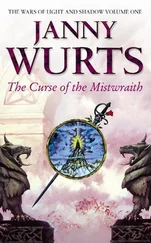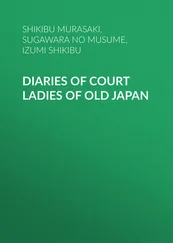Lewis Wingfield - The Curse of Koshiu - A Chronicle of Old Japan
Здесь есть возможность читать онлайн «Lewis Wingfield - The Curse of Koshiu - A Chronicle of Old Japan» — ознакомительный отрывок электронной книги совершенно бесплатно, а после прочтения отрывка купить полную версию. В некоторых случаях можно слушать аудио, скачать через торрент в формате fb2 и присутствует краткое содержание. Жанр: foreign_prose, на английском языке. Описание произведения, (предисловие) а так же отзывы посетителей доступны на портале библиотеки ЛибКат.
- Название:The Curse of Koshiu: A Chronicle of Old Japan
- Автор:
- Жанр:
- Год:неизвестен
- ISBN:нет данных
- Рейтинг книги:3 / 5. Голосов: 1
-
Избранное:Добавить в избранное
- Отзывы:
-
Ваша оценка:
- 60
- 1
- 2
- 3
- 4
- 5
The Curse of Koshiu: A Chronicle of Old Japan: краткое содержание, описание и аннотация
Предлагаем к чтению аннотацию, описание, краткое содержание или предисловие (зависит от того, что написал сам автор книги «The Curse of Koshiu: A Chronicle of Old Japan»). Если вы не нашли необходимую информацию о книге — напишите в комментариях, мы постараемся отыскать её.
The Curse of Koshiu: A Chronicle of Old Japan — читать онлайн ознакомительный отрывок
Ниже представлен текст книги, разбитый по страницам. Система сохранения места последней прочитанной страницы, позволяет с удобством читать онлайн бесплатно книгу «The Curse of Koshiu: A Chronicle of Old Japan», без необходимости каждый раз заново искать на чём Вы остановились. Поставьте закладку, и сможете в любой момент перейти на страницу, на которой закончили чтение.
Интервал:
Закладка:
The town of Tsu differed from others in that it displayed none of the spick-and-span cleanliness for which the land of the Rising Sun is as conspicuous as European Holland. The outlying cottages bore the stamp of squalor and ague, standing in oozy sludge. So did the people bear the brand of sorrow, as, listless and inert, they dragged their heavy feet. As a poor show of enterprise, a few unripe persimmons, which no one desired to buy, were exposed for sale in the mire; while here and there a tray of sorrel-like leaves were placed to dry (?) – a plant used for dying blue the cotton which is the common garment of the peasant. There was none of the briskness and gaiety to be seen that make rural Japan so cheery. None of the incessant chatter and laughter and pattering of clogs, the rush-and-tumble of naked brown babies, the whirr of the silk-looms, the busy hammer of the carpenters.
The houses, wide open to the street, displayed the usual raised platform of wood, smoothly planed, covered with matting, with hibachi or firebox in the middle; but there was no brilliant glimpse beyond of the wonderful toy gardens, with rocks and dwarfed trees and straying tortoises and gaudy flowers and crickets in tiny cages, which distinguish a prosperous village. The paper windows or screens being always pushed back in their grooves during the day, a rustic Japanese household of the lower class may be said to live in public; for, till the screens are replaced, which they usually are at dusk, there may be said to be no privacy. You have a free view of goodman or matron in the bath, or at the toilet, or eating, or sleeping, or at work, and unabashed-with innocence sometimes for only garment-they nod to you pleasantly with a cheerful "Ohayo!" as you pass. Tsu was too degraded, steeped to the lips in grinding poverty, to have energy for work or washing, much less for the homely ornament of a single lily in a pot. Almost entirely nude the men, unkempt and frowsy, lolled and slept-such a marvellous variety of attitudes of sleep a sculptor might find there-while the housewife, thin and sallow, naked to the waist, fumbled feebly over the weaving of cheap hats, or grass sandals for man and horse.
Of course the town could boast of a superior quarter, where, in front of houses of a better kind, were flapping blue cotton awnings, each one adorned with the dominant daimio's cognisance. Into one of these, apparently the cleanest and the best, we will enter (first removing our clogs and swords), for what is proceeding within should interest us somewhat.
It is evening. The house-platform is raised on stilts as usual, two feet above ground, and the first room or ante-chamber is open to the street. When we rap with fan on the paper screen beyond, some one cries "Enter," and sliding it aside we find ourselves in a large low room, whose ceiling of unpolished cryptomeria is supported by pillars of cherry. Above the dais or recess of honour at the end, a single picture hangs, representing the thirty-three Kwannon; under it is a gilt image of Buddha; while the monotony of the one wooden wall (the others are formed by paper screens running in grooves) is broken by a wandering spray of maple foliage, painted in autumn tints.
Everything is scrupulously clean and severely simple. You only become aware that this is a superior dwelling, by remarking the fineness of the mats. In the centre, round a large hibachi of bronze, filled with charcoal, a group are huddled close, for the all-pervading damp is chilling to the bones. Two well-known elders of the town are there-Zembei, and Rokubei his friend-the former talking volubly; while a man of middle age, the master of the house, is listening with dubious frown. His wife, Kennui, sits by, his hand in hers; while apart in a corner, with eyes as bright as a squirrel's, and flushed cheek, stands their eldest daughter Miné. Her mind-some call her a forward damsel-is disturbed, for, impatient and annoyed, she pushes aside a screen, and clatters off into the back garden, to tease with a finger the darting gold-fish that with mosquitoes reign in a pond.
The frowning man is Koshiu, the most important farmer in these parts, broad-shouldered, grave, and grizzled, whose opinions are of weight in the province.
Zembei-aged, with face like a walnut-has brought unpleasant news; indeed he has often dropped in of late, and each time his tidings are less agreeable. It is the old story, gruesome and too familiar. The rapacious Hojo needs more money-is always demanding more. But it is quite too bad to worry the men of Tsu, his own home, the poorest district in the Empire. Already the starving population have abandoned hope. In a former life they must have been very wicked, to suffer so much in this.
After a long pause of dejection, "Maybe my lord knows not of our wretchedness," suggests the farmer's wife, by way of pouring oil upon the waters.
"Peace, Kennui!" sighs her spouse. "As well throw stones at the sun, or try to scatter a fog with a fan, as look for humanity from a Hojo! They were ever merciless."
"Too true!" groans Rokubei, the elder. "Thus the matter stands; though you have shown so little interest of late, that perchance I am wasting breath."
"Ay, that hath he!" chimes in Zembei. "Why is it? You, Koshiu, whose words were ever of moment, and treated with respect, although from your stubborn pride you were never popular, instead of helping us, have been hanging back, content with grumbling complaint. We must act now, I tell you, and rend the air no more with idle moaning, or else we perish all! Gird up your loins, man. Awake! For unless this torrent of greed be stemmed, although less poor than most, you will soon be a beggar like the rest."
"My husband," interrupted Kennui, "is misjudged. He loves the people, and grieves for them, but perceives that resistance is useless-idle remonstrance will but make their plight more pitiful."
"The beetle in combat with the bear!" laughed the farmer drearily. "Act, forsooth! All this is idle prate, believe me. What can we do but die?"
"No idle prate," retorted Zembei. "Listen. By deputation-of which you would not form one-we humbly prayed and entreated the local counsellors of my lord: – the leeches-to be more lenient; but they replied that they were only tools, exactly performing his bidding. Then, after anxious thought and discussion, gathering together in secret the chiefs of a hundred villages, at peril of our heads, we resolved to draw up and send a solemn petition, signed by all, to my lord's golden dwelling at Kiŷoto, imploring justice. Twelve of the most respected elders, chosen from the assembly by lot, undertook the dangerous task. Clad in their grass rain-coats, they sallied forth, and arrived in time at Kiŷoto."
"Idiots!" scoffed Koshiu. "Did they pay a long farewell to wives and little ones?"
"Arrived at the Golden House, they were received at the gate with blows and contumely."
"What else did they expect?" inquired the farmer-"to be feasted in the room of honour? Other lords perhaps, dreading public exposure of their misdeeds, might, if pushed, hasten to repair a wrong-the Hojos never; for the Hojos have no shame."
Miné pouted, and rapped the pavement with impatient clog.
"To be sweeping is always to be unjust!" she cried shrilly, from the border of the pond. "There are good as well as bad in every family."
"Hush, child, hush! Be dutiful!" reproved her mother. "Thou wast bewitched by soft empty speeches and a bold bearing. It was a bad day for thee when the lord Sampei came among us!"
"He is good and brave and generous," returned the girl, with burning face, "my lord Sampei!"
Miné cooed out the name that was on every one's lips, with such an exceeding abandonment of tenderness as startled her father into attention.
"More words less sense!" he remarked testily. "My lord Sampei! what hast thou to do with him or his? My lord Sampei forsooth! Wouldst be a Hojo's concubine? Never! I'd see thee dead first."
Читать дальшеИнтервал:
Закладка:
Похожие книги на «The Curse of Koshiu: A Chronicle of Old Japan»
Представляем Вашему вниманию похожие книги на «The Curse of Koshiu: A Chronicle of Old Japan» списком для выбора. Мы отобрали схожую по названию и смыслу литературу в надежде предоставить читателям больше вариантов отыскать новые, интересные, ещё непрочитанные произведения.
Обсуждение, отзывы о книге «The Curse of Koshiu: A Chronicle of Old Japan» и просто собственные мнения читателей. Оставьте ваши комментарии, напишите, что Вы думаете о произведении, его смысле или главных героях. Укажите что конкретно понравилось, а что нет, и почему Вы так считаете.












